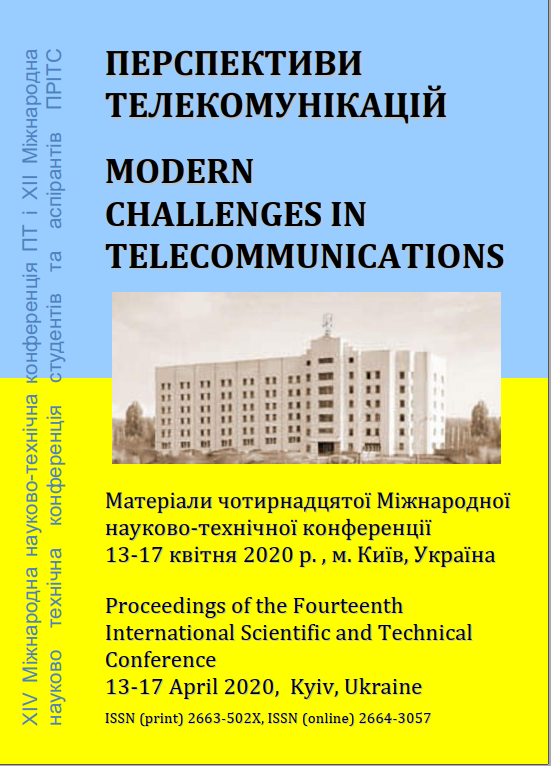МОДЕЛІ ІДЕНТИФІКАЦІЇ ТА АУТЕНТИФІКАЦІЇ В СИСТЕМАХ ХМАРНИХ ОБЧИСЛЕНЬ ДЛЯ ВЕБ-СЕРВЕРІВ ТА МОБІЛЬНИХ ДОДАТКІВ З ІНТЕЛЕКТУАЛЬНОЮ ПІДТРИМКОЮ ВИБОРУ
Ключові слова:
ІДЕНТИФІКАЦІЯ, АУТЕНТИФІКАЦІЯ, МОДЕЛЬ, ЕКСПЕРТНА СИСТЕМА, ПІДХІДАнотація
Представлено шість варіантів математичних моделей аутентифікації під час роботи користувачів з мобільними додатками у хмарній області. Запропоновано розвідувальний підхід для вибору системи ідентифікації та аутентифікації на основі ролей бази знань експертної системи.
Models of identification and authentication in cloud computing systems
for web servers and mobile applications with intelligent support of choice
Six variants of mathematical models of authentification during users work with mobile applications in cloud area are represented. The intelligence approach for choice of identification and authentification system on the base of expert system knowledge base roles is proposed.
Посилання
Аутентификация. Теория и практика обеспечения безопасного доступа к информационным ресурсам / А.А. Афанасьев, М.: Горячая линия - Телеком, 2012. 550 с.
Вишняков В.А. Информационная безопасность в корпоративных системах, электронной коммерции и облачных вычислениях: методы, модели, программно-аппаратные решения / В.А. Вишняко, Минск: Бестпринт, 2016. - 276 с.
Сабанов А.Г. Принципы классификации систем идентификации и аутентификации по
признакам соответствия требованиям информационной безопасности // Электросвязь, 2014, № 2. С. 6-9.
##submission.downloads##
Як цитувати
Номер
Розділ
Ліцензія
Авторське право (c) 2020 Ангеліна Олександрівна Пилипчук

Ця робота ліцензується відповідно до Creative Commons Attribution 4.0 International License.
Authors who submit to this conference agree to the following terms:a) Authors retain copyright over their work, while allowing the conference to place this unpublished work under a Creative Commons Attribution License, which allows others to freely access, use, and share the work, with an acknowledgement of the work's authorship and its initial presentation at this conference.
b) Authors are able to waive the terms of the CC license and enter into separate, additional contractual arrangements for the non-exclusive distribution and subsequent publication of this work (e.g., publish a revised version in a journal, post it to an institutional repository or publish it in a book), with an acknowledgement of its initial presentation at this conference.
c) In addition, authors are encouraged to post and share their work online (e.g., in institutional repositories or on their website) at any point before and after the conference.

